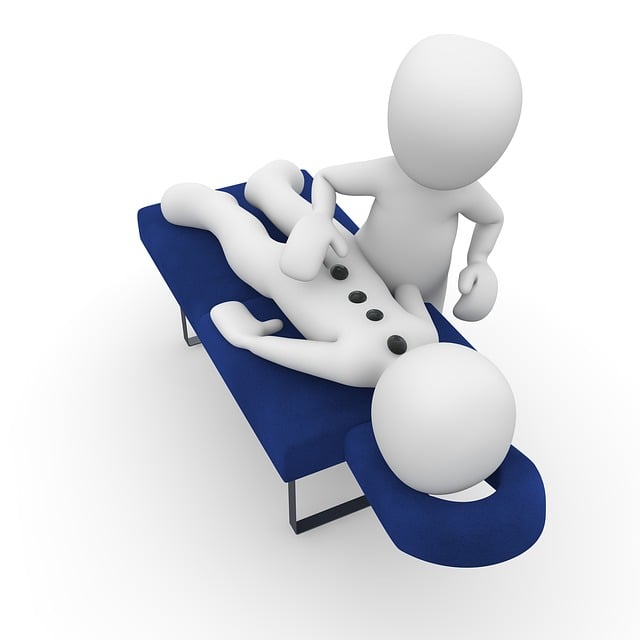Adolescence faces sleep disruptions due to biological changes and external pressures, impacting mental health, especially anxiety. Cognitive Behavioral Therapy for Adolescents (CBT-A) addresses these issues by targeting negative thought patterns related to sleep and teaching stress management techniques. CBT-A, combined with healthy sleep hygiene, offers a comprehensive approach to managing anxiety in teens.
Adolescence is a critical period marked by heightened anxiety, often compounded by irregular sleep patterns. This article explores the intricate relationship between sleep and anxiety in teens, focusing on strategies to mitigate anxiety through improved rest. We delve into the unique sleep challenges adolescents face, examining how sleep deprivation contributes to mental health issues. Additionally, we highlight cognitive behavioral therapy (CBT) as an effective CBT for adolescents approach to enhancing sleep quality and managing anxiety, offering practical tips for parents and caregivers.
Understanding Adolescent Sleep Patterns and Anxiety
Adolescence is a period of significant physical and emotional change, often marked by disrupted sleep patterns. This is partly due to biological factors, such as the shifting sleep-wake cycle that occurs during this stage of life. However, it’s also influenced by external elements like academic pressures, social media use, and increased independence. These changes can lead to delayed sleep onset and fragmented sleep, affecting overall sleep quality.
Anxiety is a common issue among adolescents, with many experiencing generalized anxiety disorder, social anxiety, or obsessive-compulsive disorder. Research suggests that inadequate or poor-quality sleep can exacerbate these conditions, creating a vicious cycle. For instance, cognitive behavioral therapy for adolescents (CBT-A), a widely recognized treatment for anxiety disorders, emphasizes the importance of good sleep hygiene to enhance the effectiveness of its techniques. Understanding and addressing adolescent sleep patterns are, therefore, crucial steps in managing and reducing youth anxiety.
The Impact of Sleep Deprivation on Youth Mental Health
Sleep deprivation among adolescents can have profound effects on their mental health, with anxiety being a notable concern. Adolescence is already a period of significant emotional and cognitive development, and insufficient sleep can disrupt this process. Studies show that when teens miss out on adequate rest, it impairs their ability to regulate emotions, leading to heightened stress responses and increased anxiety levels. This is particularly relevant as many adolescents struggle with managing anxiety disorders, often requiring professional help like cognitive behavioral therapy for adolescents (CBT).
The link between sleep and mental health is well-established, and ensuring a consistent sleep routine can be a powerful tool in treating and preventing anxiety in young people. CBT, combined with proper sleep hygiene, offers a comprehensive approach to addressing anxiety, teaching teens coping strategies that can be more effective when their bodies are well-rested.
Cognitive Behavioral Therapy: A Powerful Tool for Sleep Improvement
Cognitive Behavioral Therapy (CBT) is a highly effective tool in helping adolescents improve their sleep quality and, consequently, reduce anxiety levels. This type of therapy focuses on identifying and changing negative thought patterns and behaviors that contribute to sleep disturbances. By teaching adolescents techniques to manage stress, CBT empowers them to fall asleep faster and enjoy deeper, more restful nights.
Through structured sessions, CBT for adolescents addresses common issues like overthinking, worry, and procrastination, which can interfere with sleep. It offers practical strategies such as relaxation exercises, cognitive reframing, and habit changes tailored to each individual’s needs. With consistent practice, these techniques not only enhance overall sleep hygiene but also provide long-lasting coping mechanisms for managing anxiety during the day.
Strategies to Enhance Sleep Quality in Teens with Anxiety
Teens experiencing anxiety often face challenges in achieving quality sleep, which can exacerbate their symptoms. To improve sleep and reduce anxiety, several strategies can be employed. One effective approach is cognitive behavioral therapy for adolescents (CBT-A), which helps individuals identify and change negative thought patterns and behaviors that contribute to anxiety. CBT-A can include relaxation techniques such as deep breathing exercises and progressive muscle relaxation, designed to calm the mind and body before sleep.
Additionally, establishing a consistent sleep routine, limiting screen time before bed, and creating a relaxing bedtime environment are beneficial. Teens should aim for 8-10 hours of uninterrupted sleep each night. Regular exercise during the day and exposure to natural light can also enhance sleep quality. Incorporating these strategies into daily life not only improves sleep but also empowers teens with tools to better manage anxiety symptoms over time.
In light of the above discussions, it’s clear that addressing sleep issues is a key strategy in managing anxiety among adolescents. By understanding the unique sleep patterns of this demographic and the profound effects of sleep deprivation on their mental health, we can implement effective solutions. Cognitive behavioral therapy (CBT) for adolescents emerges as a powerful tool for improving sleep quality, offering a structured approach to reframe negative thoughts and behaviors related to rest. Additionally, incorporating targeted strategies to enhance sleep environments and routines can significantly mitigate anxiety levels, fostering healthier, more secure teens. These findings underscore the importance of prioritizing sleep in youth mental health care.
